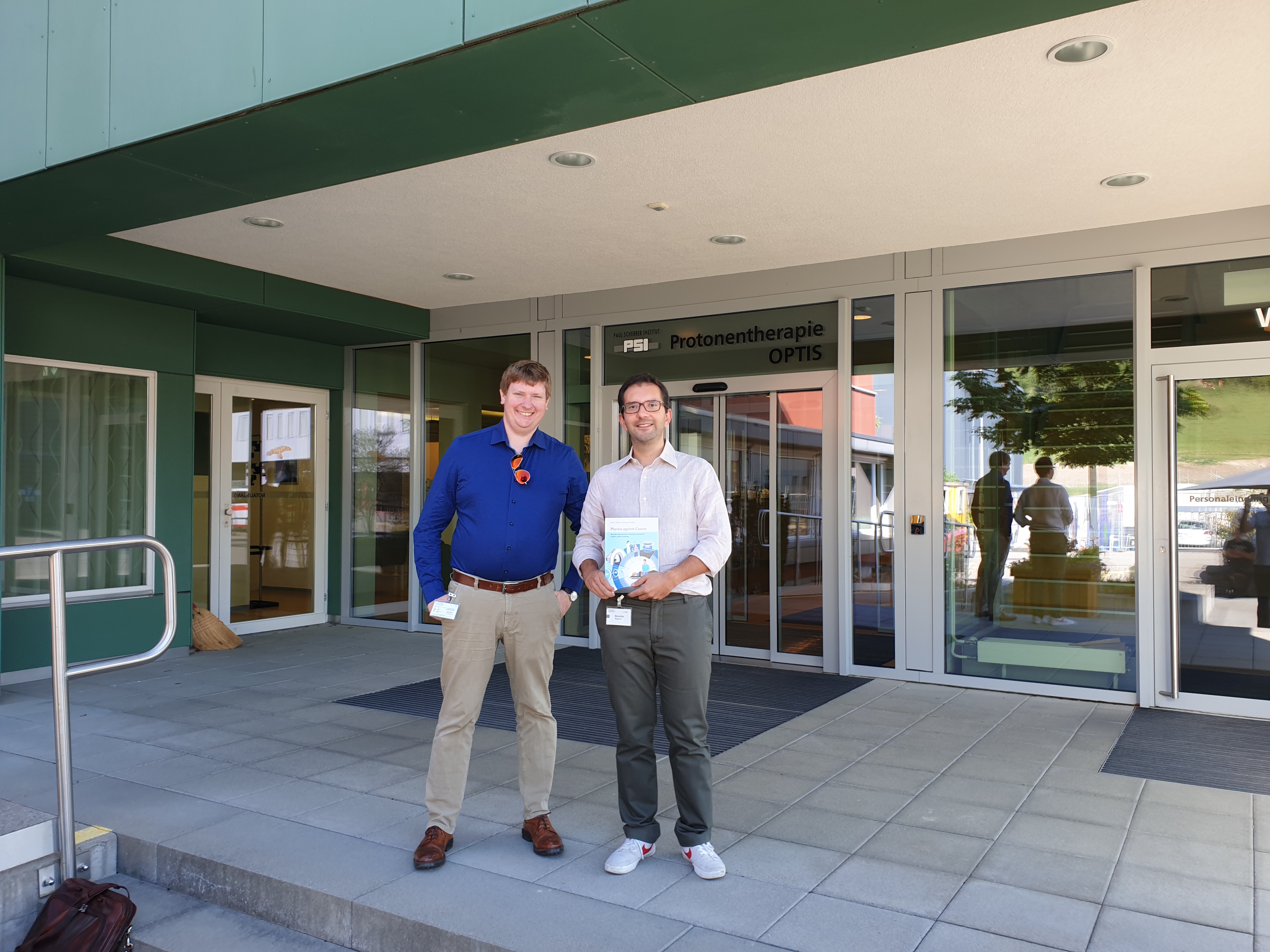Luca Garolfi is the latest participant in the I.FAST Academia-Industry Exchange Programme. Currently, working on medical accelerators at CERN within the SEEIIST collaboration*, he had the opportunity to gain crucial experience in industrial practices by spending two months at Cosylab Switzerland GmbH in July and August.
Tell us more about yourself and your background.
I hold a Ph. D. in accelerator science from the University of Paris-Saclay. I worked as a Senior Research Fellow and Visiting Scientist on behalf of external institutes and universities at CERN. I have strengthened my expertise in beam dynamics simulations, accelerator systems, and machine operation, serving experimental activities at CERN. I worked as a production engineer in a MedTech start-up offering intra-operative gamma-ray probes for cancer detection. More recently, my interest and attention have focused on medical accelerator projects and design studies.
Lately, you had the opportunity to turn this interest into something more concrete.
Exactly. After many years working in R&D for particle accelerators in public institutes, I wondered how similar expertise and knowledge are leveraged in private companies. In late March, Maurizio Vretenar, the coordinator of I.FAST, told me about the opportunity to make an exchange programme with a private company to both train myself and share my R&D knowledge. This exchange programme, sponsored by I.FAST, works both ways and also allows engineers or technicians working for companies to partner at research institutes and spend some time at their premises.
And you thought about Cosylab…
Cosylab was the best choice for me. I really was keen to learn from a company that has unique expertise in software solutions and control systems engineering, especially for medical accelerator projects. Also, Cosylab wasn’t unknown to me, as it collaborates already with CERN on on-going accelerator and particle source projects.
On the I.FAST side, the overall application and selection process was smooth. Once we submitted a project proposal agreement with Cosylab, the I.FAST committee took less than one month to give me the final decision.
What is your impression of working in the industry coming from academia?
Very good! The company was enthusiastic about exchanging with me. The engineers explained how they structure their project management methodology, going through each step of product development and communicating critical information. On my part, I helped to integrate technical details that had not previously been considered, while assessing the feasibility and competitiveness of the product on the market.
The I.FAST exchange brought together Luca's deep knowledge of accelerator design with Cosylab's proven methodology for developing complex medical systems and software, the result being a detailed design for a medical product. Importantly, the exchange fostered a spirit of collaboration that extended to Cosylab's customers and suppliers and I believe the connections made during the work will last for years to come.
Conor Slater, CEO of Cosylab.
What were your missions?
My main mission was to provide some input for the company’s business model. For this purpose, I linked knowledge and expertise between Cosylab Switzerland GmbH and a research laboratory for innovative product development. Peculiar information describing technical properties were collected, reported, and analysed by me to help engineers and developers define their strategy for the product's commercialisation.
Now you are back at CERN, what did you take back from the programme?
A lot of learnings! I developed a new mindset in terms of research and development methodology by having the opportunity to carry out studies and tackle challenging aspects other than purely technical ones. In addition, I was happy to play a role in transforming a simple system into an attractive and competitive product on the market, by looking for optimised solutions.
Would you recommend the programme?
I would encourage anyone working for the I.FAST collaboration to sign up for this programme. It allowed me to develop my skills and analyse other key and complementary aspects of a medical facility project.
The EU-supported project I.FAST offers the possibility to finance exchanges of knowledge, expertise, and working practices of new accelerator and magnet component technologies between an I.FAST laboratory and a European company. Applications for the I.FAST Academia-Industry exchange programme are open until April 2024.
Information and application form are available on https://ifast-project.eu/ifast-traineeship-programme
*The South East European International Institute for Sustainable Technologies (SEEIIST) is developing the design of a carbon therapy accelerator to be built in the region.

